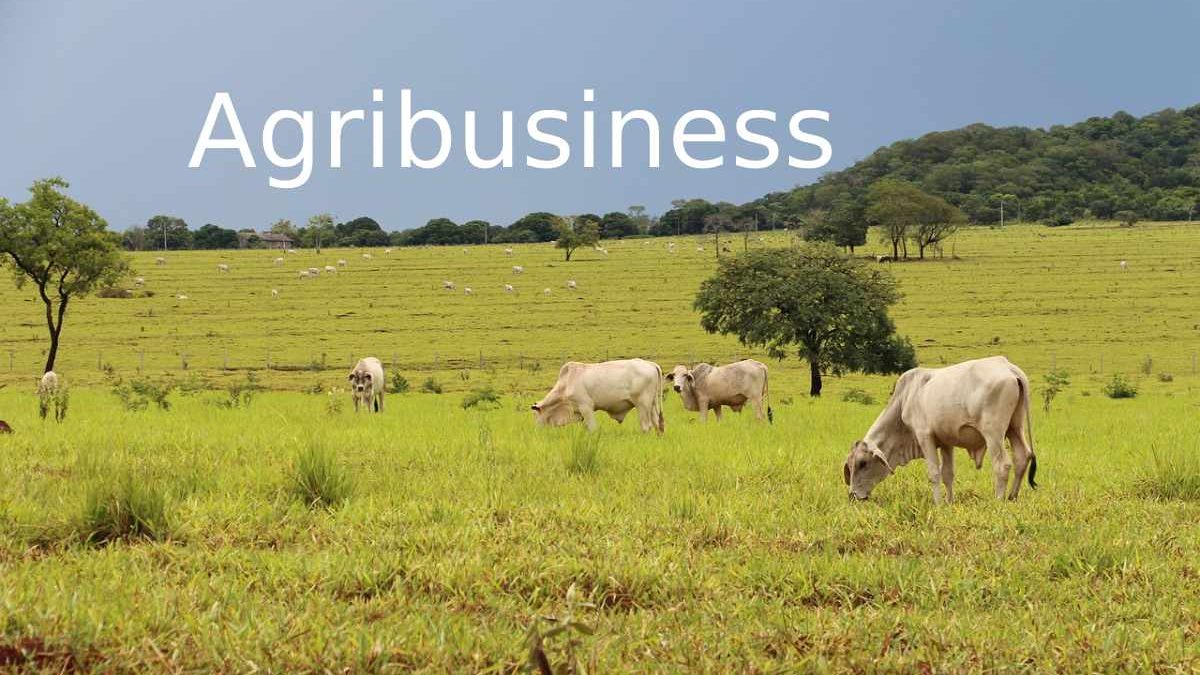Table of Contents
What Is Agribusiness?
Agribusiness refers to industries engaged in agriculture or producing agricultural inputs. Examples of agro-industry are agricultural machinery, seed supply and agrochemicals.
In common usage, the term “agribusiness” generally refers to large agricultural enterprises instead of small independent farms. However, agribusinesses can be large or small, corporate or independent. Learn about agribusiness to understand food production, processing and distribution activities.
Agriculture Explained
Agribusiness describes businesses and enterprises involved in growing and processing food and other agricultural products.
Agribusiness is also use to describe businesses involve in the marketing and distributing agricultural products. These businesses include warehouses, wholesalers, processors, retailers, etc. In addition, any company engaged in the production, marketing, safety and distribution of food is agribusiness.
The use of the term “agribusiness” by critics of corporate farming has created an aura of negativity around the concept, associating it with large corporations and companies that produce environmentally questionable non-organic products—at the same time, ensuring that smaller and potentially sustainable farms do not. T make a profit. But the industry includes small and medium enterprises as well as global corporations.
It is possible to study agribusiness at various colleges and universities in the United States, including Cornell University in Ithaca, New York, and Iowa State University. Business administration and the science of farm management. Graduates can pursue careers in agricultural finance, supply, marketing and agricultural operations, among others
Types Of Agribusinesses
Not all agribusinesses are directly involve in food production. Consider Deere & Company, which manufactures John Deere equipment and is perhaps one of the best-known examples of a classic agribusiness company.
Deere & Company doesn’t own farms or produce food, but nearly every farmer owns an iconic green and gold John Deere tractor, baler, or other farm tool.
Bayer, which acquire The Monsanto Company in 2018 and manufactured the herbicide Roundup (glyphosate) and several genetically modifie Roundup Ready seeds, is another example of a company involved in agribusiness. It was once a wholly-owned subsidiary. % of Dow AgroSciences LLC manufactures pesticides, herbicides and fungicides and markets seeds.5
Archer-Daniels-Midland Company or ADM processes oilseeds such as canola and soybeans; processes corn into ingredients like corn syrup, dextrose, and starch; and transports crops at home and abroad.6
The term agribusiness is generally not used for individual farms, although Smithfiel Foods Inc., America’s largest pork producer, owns and operates its farms. Smithfiel is owned by China’s WH Group (formerly Shuanghui International), the world’s largest pork producer and China’s largest meat producer.
Agribusiness Vs Organic Farming
In the United States, agribusiness is often use instea of organic farming. So, for example, when talking about large commercial farms, many people use the term agribusiness, but you won’t hear the term in relation to small organic farms.
Small family farms, small organic agribusinesses and organic farmers often feel they have to compete with large agribusinesses when entering the agricultural market. As a result, there is a lingering feeling among family farmers that they are an endangered species due to the encroachment of agribusiness and corporate farms.
However, small businesses are businesses too. For example, the United States Department of Agriculture (USDA) advises new farmers to write a business plan. The USDA also recommends that new farmers determine. The business structure of their farm, such as a limited liability company (LLC), corporation, cooperative, etc.
Also Read: What Is Bitcoin? – Results, Point-To-Point Technology, And More


